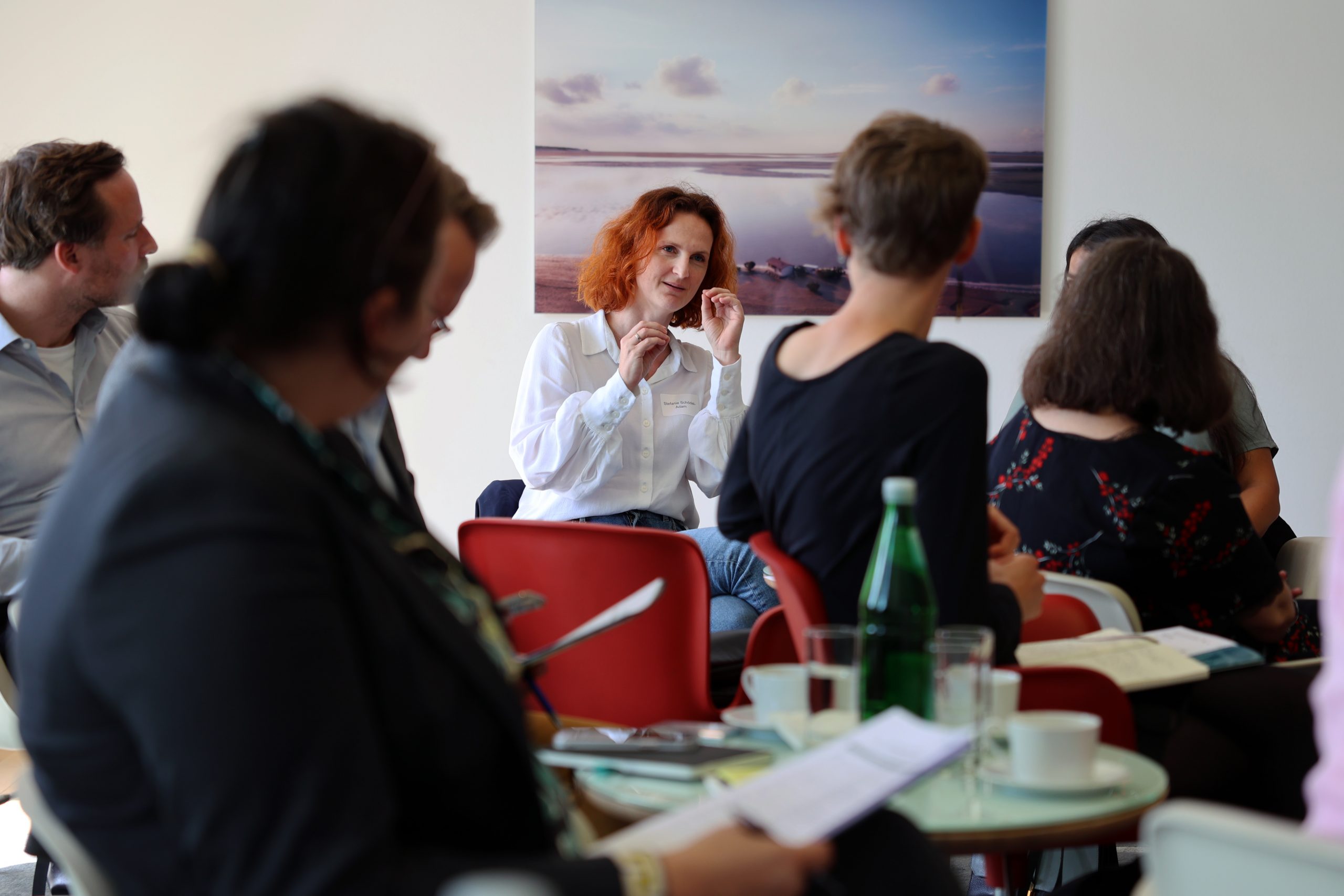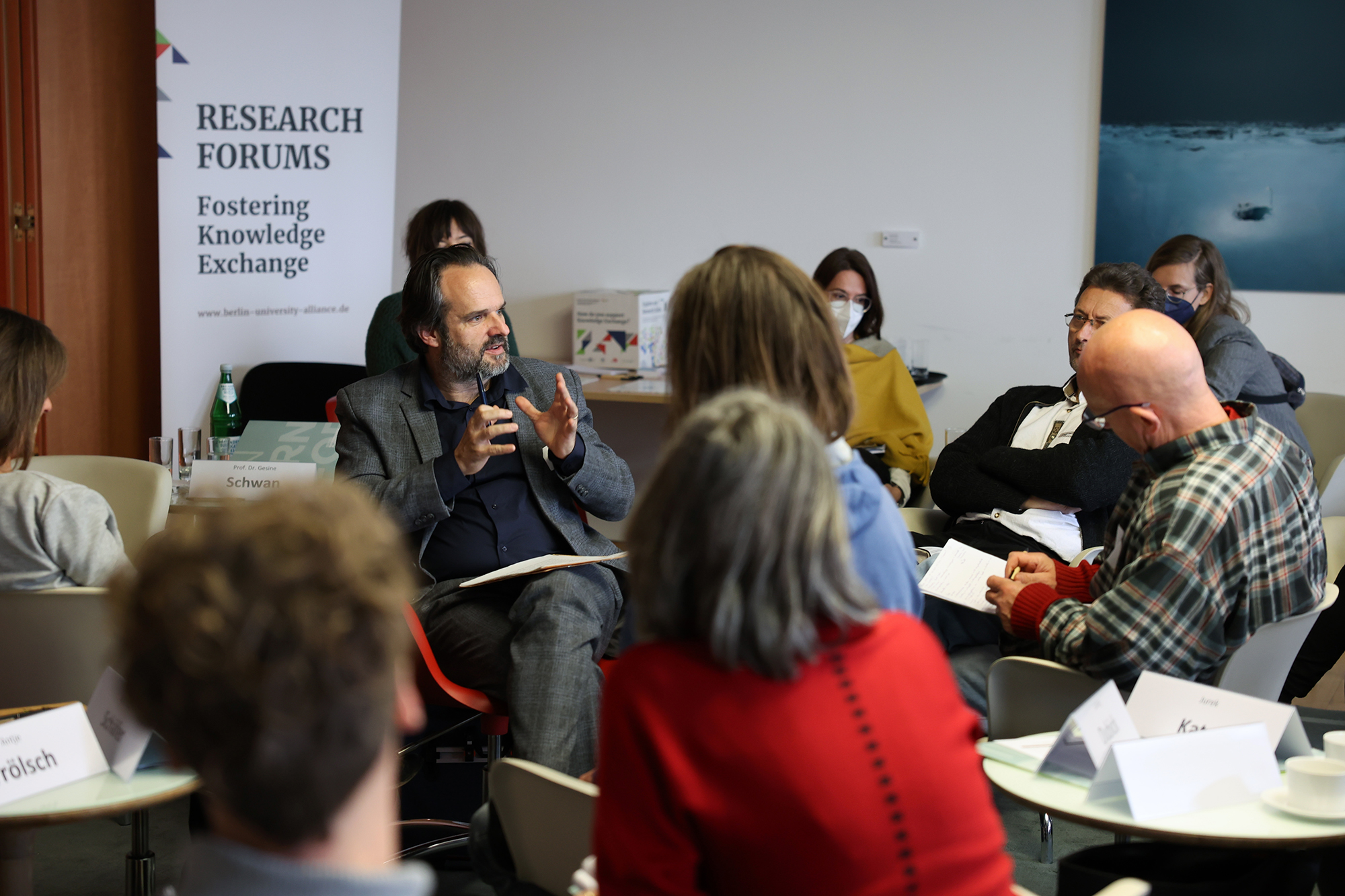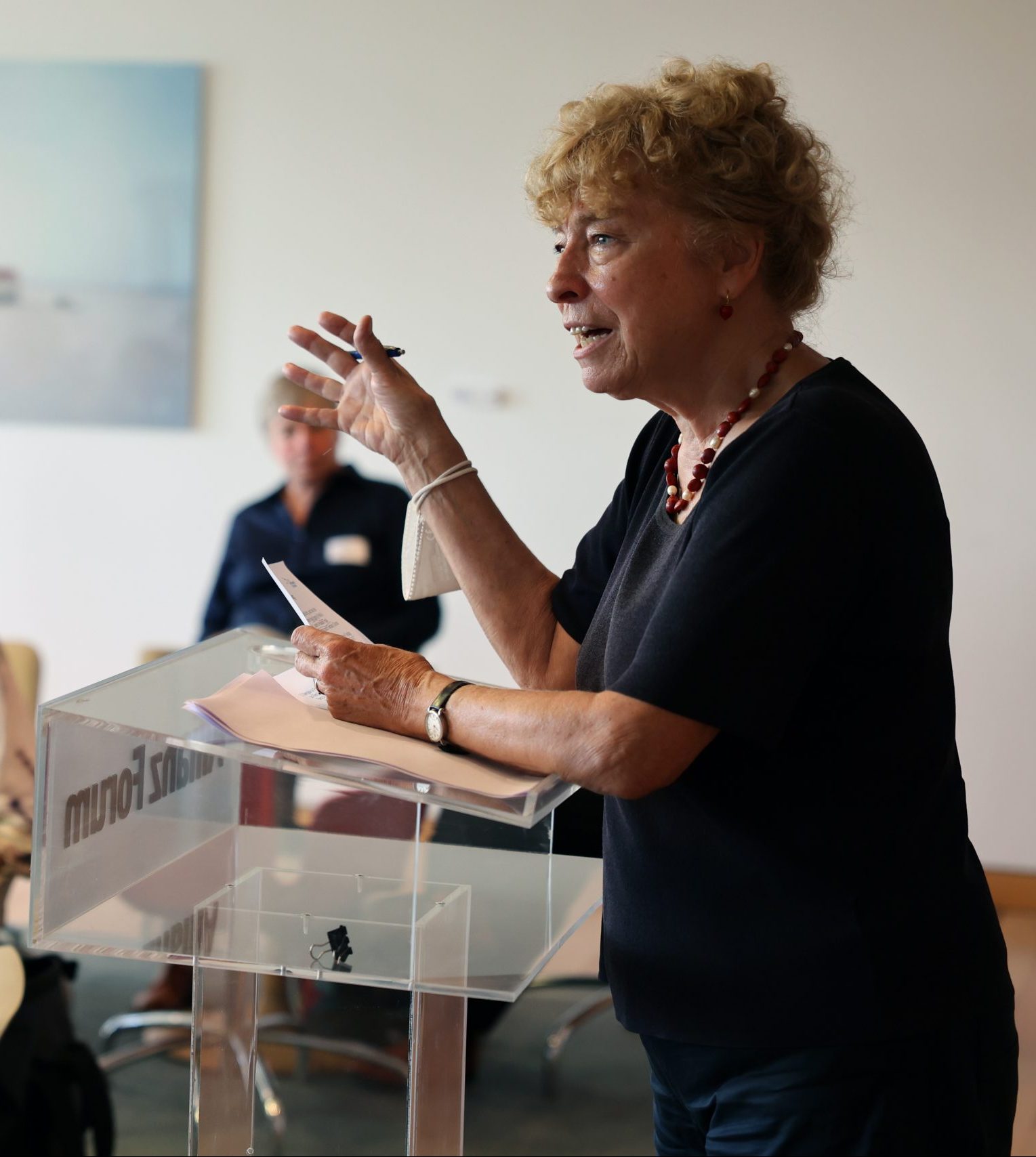Our trialogues bring stakeholders from politics and administration, business and organized civil society into exchange, accompanied by science and the media. They create understanding where a diversity of perspectives is needed: in current social debates and in policy, science and process consulting. Trialogues prepare the ground for viable decisions. The trialogue format is particularly suitable for conflictual and complex issues and topics. It opens up new approaches to deadlocked debates and determines the state of affairs of a social discussion.
Contact: Daphne Büllesbach
Trialogues are one-day events with up to 50 participants from the stakeholder groups of politics and administration, business and organised civil society. A trialogue is not a panel discussion, but is organised with short input presentations and contributions from the entire group of participants. The moderated discussion of all participants in the plenary session is of central importance. Science and the media do not accompany the trialogue as stakeholders. Science contributes its information and insights to the dialogues. The media - without naming the participants - ensure their public dissemination.


Trialogues are usually recorded and transcribed. On the basis of the transcript, a sociological evaluation of the discussion is conducted. On the basis of a qualitative analysis, compatability and overlapping of arguments, problem areas and courses of action are worked out. The aim is to identify common ground shared by all stakeholders for sustainable decisions in politics, business and society. In compliance with the Chatham House Rule, the evaluation will be published, for example, in the form of a report on our website.
The Berlin Governance Platform has a unique and longstanding experience in organizing Trialogues. Up until now, more than 50 Trialogues on various societal topics have already been organized. Our sponsors, clients, and cooperation partners come from the three stakeholder groups mentioned above (such as the Federal Ministry of Economics, acatech - National Academy of Science and Engineering, TU-Berlin, housing associations, foundations).
Trialogues bring together as many different and sometimes antagonistic perspectives as possible. Due to their different functions, experiences and power potentials, stakeholders cover a broad spectrum of important societal perspectives.
The participants of trialogues justify their positions in the discussion and respond to the previously mentioned arguments. This forms the basis for a new understanding and a change of perspective, so that the conversation can take new directions and discover new common ground. The Trialogues take place in compliance with the Chatham House Rule and create a confidential space.
It is important for us to ensure that the results of a Trialogue are comprehensible and support processes for sustainable decisions. For this reason, the rigorous processing and analysis of the trialogue is an essential part of the concept. By scientifically evaluating the transcript, we work out how the different arguments relate to each other and identify the common ground on which sustainable decisions can be prepared.

A Trialogue is a one-day event with approximately 30-50 participants from politics and administration, business, and organized civil society. A Trialogue usually lasts eight hours (9:00-17:00). Depending on the complexity of the topic, a series of several Trialogue events is possible, each with a different thematic angle.
A Trialogue can be organized on a wide range of topics. In general, the topic should be relevant to society as a whole. Recent trialogues addressed topics such as energy transition, urban development, work and family, the future of democracy, and the question of social cohesion.
For the implementation of a trialogue, at least one person is needed who works closely with us as a team during the preparation. The documentation and moderation is usually done by staff members of the Berlin Governance Platform. If desired, Knowledge Atlases an interactive documentation of the discussion results is possible via our knowledge atlases.